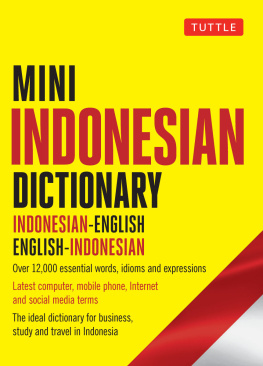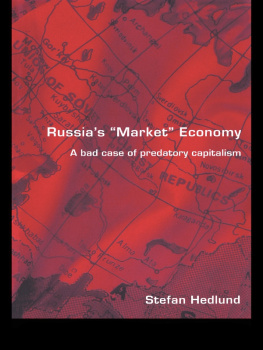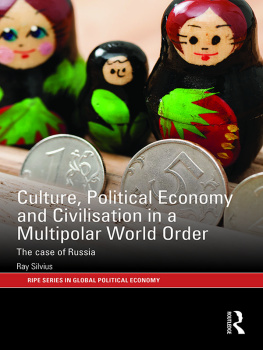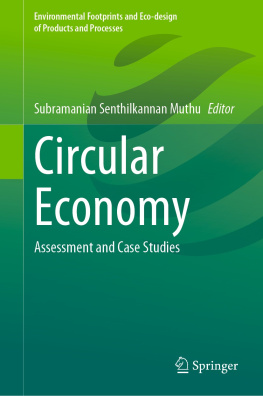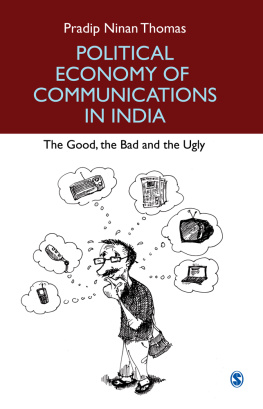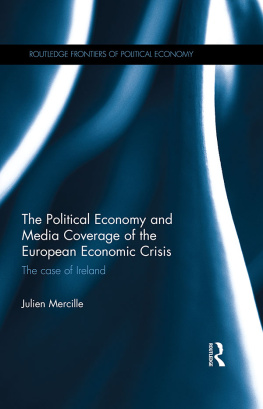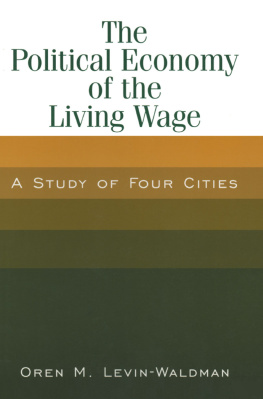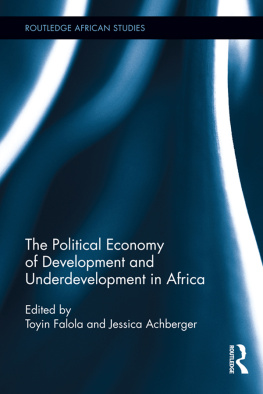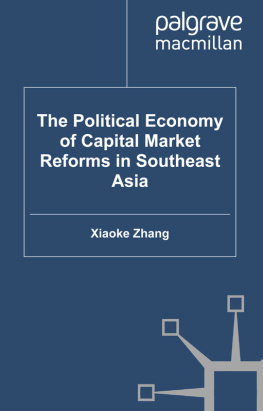ROUTLEDGE LIBRARY EDITIONS: BUSINESS AND ECONMICS IN ASIA
Volume 16
THE INDONESIAN ECONOMY SINCE 1965
First published in 1978 by Frank Cass and Company Limited
This edition first published in 2019
by Routledge
2 Park Square, Milton Park, Abingdon, Oxon OX14 4RN
and by Routledge
52 Vanderbilt Avenue, New York, NY 10017
Routledge is an imprint of the Taylor & Francis Group, an informa business
1978 Ingrid Palmer
All rights reserved. No part of this book may be reprinted or reproduced or utilised in any form or by any electronic, mechanical, or other means, now known or hereafter invented, including photocopying and recording, or in any information storage or retrieval system, without permission in writing from the publishers.
Trademark notice: Product or corporate names may be trademarks or registered trademarks, and are used only for identification and explanation without intent to infringe.
British Library Cataloguing in Publication Data
A catalogue record for this book is available from the British Library
ISBN: 978-1-138-48274-6 (Set)
ISBN: 978-0-429-42825-8 (Set) (ebk)
ISBN: 978-1-138-61768-1 (Volume 16) (hbk)
ISBN: 978-0-429-46149-1 (Volume 16) (ebk)
Publishers Note
The publisher has gone to great lengths to ensure the quality of this reprint but points out that some imperfections in the original copies may be apparent.
Disclaimer
The publisher has made every effort to trace copyright holders and would welcome correspondence from those they have been unable to trace.
THE INDONESIAN ECONOMY SINCE 1965
A Case Study of Political Economy
INGRID PALMER
First published 1978 in Great Britain by
FRANK CASS AND COMPANY LIMITED
Gainsborough House, Gainsborough Road,
London, Ell 1RS, England
and in the United States of America by
FRANK CASS AND COMPANY LIMITED
c/o Biblio Distribution Centre
81 Adams Drive, P.O. Box 327 Totowa, New Jersey 07511
Copyright 1978 Ingrid Palmer
British Library Cataloguing in Publication Data
Palmer, Ingrid
The Indonesian economy since 1965.
1. IndonesiaEconomic conditions1945-
I. Title
330.959803 HC447
ISBN 0-7146-3088-8
All rights reserved. No part of this publication may be reproduced in any form or by any means, electronic, mechanical, photocopying, recording or otherwise, without the prior permission of Frank Cass and Company Limited in writing.
Printed in Great Britain by
T. J. Press (Padstow) Ltd., Padstow, Cornwall
Numerous articles have been written on the economy of Indonesia since 1965, but as articles they have not been substantial enough to present a detailed overview of all sectors. Nor have they offered a framework of continuity from the past to the most recent developments. And yet this country, the fifth most populous in the world, merits such a study because it has received a disproportionate amount of attention from foreign capital and aid.
This study is presented in a form which describes the underlying structure of the mass-based economy and its problems, and goes on to show how the hectic economic activity after 1965 failed to come to terms with the real needs of the people. It divides the new Indonesian economy into endogenous and exogenous parts in order to highlight the gulf between growth and development.
An index was not included for several reasons. First, very few persons were named in the book as leading actors in the events recorded and those persons who were influential or who have written on the Indonesian economy in a useful manner are recorded in the Bibliography. Second, as can be seen from the Bibliography, as well as from the text, the book was written not only for academics but also for journalists and people in ordinary walks of life who are interested in Indonesia, and was therefore not intended as a formal textbook. Third, the titles of the chapters, the list of contents and the list of tables offer the reader a quick and ready guide to where individual subjects are discussed.
I have to thank Professor W. F. Wertheim for his many detailed comments on the manuscript which were of great help. The ideas, and any mistakes, remain my own. My thanks also go to Pat Triviere and Susan Simmonds who prepared the manuscript for publication.
The term political economy is used in the title of this book to focus attention on the incessant interaction of political and economic life. To talk ofthe economy alone is to imply that this aspect of life has a relentless, but objective, imperative of its own constrained by the limits of resources whose active dimensions are independent of non-economic or non-physical factors. More importantly, the awareness of political economy is an aid to identifying the sectoral flow of surpluses and their availability for re-investment. By awarding greater recognition to the dichotomy of private and social profit one is less inhibited when viewing the internal consistency of a strategy of overall development and of the feasibility of maintaining the momentum of its general thrust. To challenge the hegemony of mere economic analysis is to question why price distortions and market imperfections are so obsessionally seized upon by development economists when the viability of a strategy is suspect for far more obvious and significant reasons. It is to question why a system of thought which reduces human contribution to development either to profit-maximising entrepreneurship or to units of labour ever gained such popular currency. It is to question why a country should be obliged to aim at the outer edge of its national material production possibilities, with only passing reference to social and political possibilities.
We know, of course, that the expression the most efficient allocation of resources is highly subjective to the prevailing distributions of income, assets and political power as well as to artificially created wants. And yet it is a response which is chanted with unfailing religious reverence by western economists. We all know the gross astigmatisms of theoreticians, yet the reverence continues.
Indonesia is such a huge archipelagian country with its full share of dualisms and pluralisms that there are as many optimal plans for it as there are places from which to view the country. For this reason any attempt to utilise the theory of comparative advantage will be damaging to some peoples livelihoods and so to power balances. The theory as it was applied to East Pakistan jute exports intended to finance West Pakistans industrialisation gave birth to Bangladesh. The same relation, pushed hard between Sumatra and Java, could produce a similar result for Indonesia. The theory of comparative advantage must always flounder in the issues of whose advantage?, and subject to which political feasibilities?.
The other main theory which is worshipped as intellectual manna is that of equating economic opportunity costs at the margin. This theory states that if a resource can earn more in another employment its current employment has an opportunity cost and that its allocation is therefore sub-optimal. Apart from the fact that the market value of resources in alternative employments will vary for every distribution of income and wealth, it ignores the implications of one important factor of production always reproducing and multiplying itself in a manner largely independent of its economic return. This peculiar characteristic of labour has never been properly accommodated in the body of economic theory except in scarcely veiled suggestions that the working class should be prevented from breeding. This indifference to human needs, and the implicit assumption that human beings are there to serve the economy and that the economy is not there to serve the people, explains the strange omission in the literature of a term such as nutritional opportunity cost: that is to say, that a strategy being followed may have a higher cost in terms of malnutrition or undernutrition than alternative strategies. Likewise the absence of political and social opportunity costs; though less so because, whereas there is no known case of an economist starving some have been known to fall from power for causing political trouble, and they act as an example to others.




